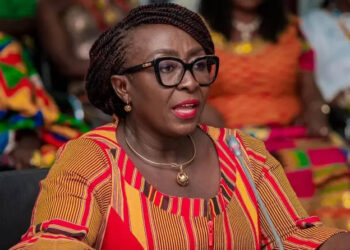By Enyichukwu Enemanna
As the country advances the discourse on transition from fossil energy, Minister of State for Petroleum Resources, Chief Timipre Sylva and the Group Chief Executive Officer of the Nigerian National Petroleum Company (NNPC) Limited, Mele Kyari, will feature at a panel section during a Conference organised by National Association of Energy Correspondents (NAEC) where they are expected to brainstorm on the future of Nigeria’s hydrocarbon sector.
Holding in Lagos, Chief Executive Officer of the Nigerian Upstream Petroleum Regulatory Commission (NUPRC), Mr. Gbenga Komolafe, the Executive Secretary Nigerian Content Development and Monitoring Board (NCDMB) Engr. Simbi Wabote, International Oil Companies, independents, including the power sector will also be part of the conference.
The 2022 edition of the Conference will centre on the theme: “Energy Transition: Shaping the future of Nigeria’s energy industry, ’An appraisal of PIA, Evolving Benefits and Challenges.”
The Chairman of NAEC Olu Phillips said the conference is an annual event that attracts industry stakeholders, policy makers and the public at large.
This year’s Conference, he said, is aimed at attracting global industry players, as well as policy makers.
“The Federal Government has declared 2021 to 2031, ‘A decade of Gas’. This gives the government and industry players the opportunity to tell Nigerians and the world the benefits derivable from a gas-propelled economy and its transition programmes.
“It provides the platform for Captains of industry, Regulators, Lawmakers and all other stakeholders to meet and deliberate on issues affecting the smooth operation of the energy industry, growth prospects and opportunities,” he said.
Special Industry spotlight would be on ‘Decade of Gas: How NLNG is Advancing the Nation’s Economy through Effective Gas Utilisation’.
Nigeria seeks to conditionally reduce its greenhouse gas (GHG) emissions by at least 47% by 2030.
The country’s nationally determined contributions (NDCs) under the Paris Agreement include: ensuring that 30% of on-grid electricity and 13 gigawatts of off-grid energy is derived from renewable sources; achieving zero gas flaring by 2030; and reducing fugitive emissions from oil and gas production by 60% by 2031.
Implementation of the NDCs is projected to cost USD 177 billion. Nigeria is currently working towards implementing a carbon tax and intends to develop its critical mineral reserves to serve the projected increase in global demand.



































